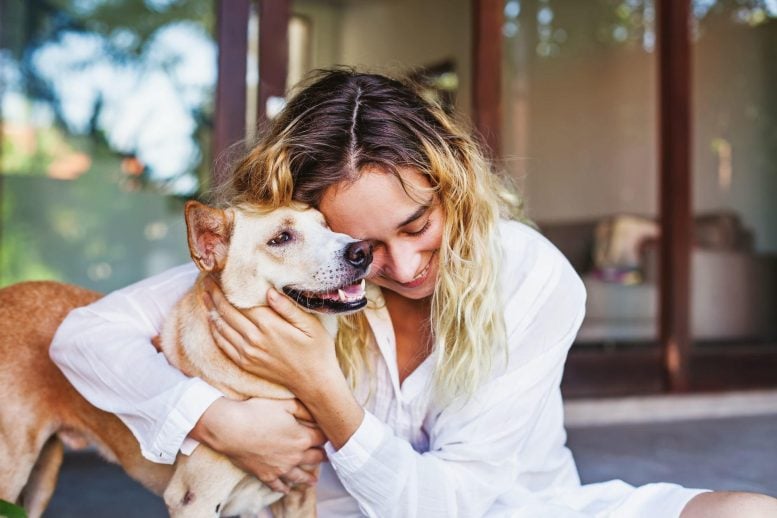
Los dueños de perros y gatos en los Estados Unidos se han vuelto más cercanos a sus mascotas durante la pandemia de COVID-19, revela un nuevo estudio, con vínculos complejos que surgen entre la tenencia de mascotas, el estrés y la soledad. Si bien los dueños de perros experimentaron mayores reducciones en el estrés y la soledad durante los períodos de reapertura y recuperación que los dueños de gatos y los que no tenían mascotas, tener una mascota no ha reducido categóricamente los niveles generales de estrés y soledad durante la pandemia.
Durante la pandemia, los dueños de perros y gatos han reportado una relación más cercana con sus mascotas, sin embargo, la relación entre las mascotas y el estrés o la soledad es compleja.
Según un estudio reciente, la[{» attribute=»»>COVID-19 pandemic appears to have strengthened the bond between US pet owners and their dogs or cats. The research, conducted by Niwako Ogata, Hsin-Yi Weng of Purdue University in the US, and a colleague, sheds light on the intricate connection between pet ownership, stress, and loneliness during the pandemic. The findings were published in the open-access journal PLOS ONE.
The COVID-19 pandemic presents a rare opportunity to examine the relationships between pet owners and their pets, as well as any possible correlations between pet ownership and mental health. While previous studies have delved into these subjects within the context of the pandemic, their scope has been limited.
Ogata and Weng conducted a series of surveys to capture the dynamics of dog and cat ownership in the USA – prior to the pandemic, during the lockdown period of April to June 2020, the reopening of September to December 2020, and a recovery period from January to December 2021.
The surveys included questions related to participants’ closeness to the pet they felt most attached to, stress and loneliness levels, demographics, housing situation, personality, and other potentially relevant factors. Participants included 1,266 people with dogs and cats, 1,186 with only dogs, 1,128 with only cats, and 657 with no pets.
Statistical analysis of the survey responses showed that both dog and cat owners grew closer to their pets during the study period. However, links between pet ownership and mental health were more complex.
Compared to cat owners and participants without pets, dog owners experienced a greater reduction of stress and loneliness during the reopening and recovery periods. Nonetheless, the researchers did not find statistically sound evidence that pet ownership eased participants’ stress and loneliness levels during the pandemic, and cat owners generally had more stress and loneliness than other participants. However, separating out different types of loneliness showed that, compared to non-pet owners, pet owners reported less loneliness specifically related to romantic relationships.
Further analysis suggests that the different results seen for dog versus cat owners may be explained by differences in the pet-owner relationship between these two groups.
The researchers will continue collecting similar data through 2023 in order to capture any further changes in pet-owner relationships, stress, and loneliness.
The authors add: “People felt closer toward their pets during the COVID-19 pandemic even though pet ownership did not mitigate stress and loneliness. Dog ownership and cat ownership acted differently on mental health, but the difference between them could be partially explained away by the owner-pet relationship.”
Reference: “Temporal patterns of owner-pet relationship, stress, and loneliness during the COVID-19 pandemic, and the effect of pet ownership on mental health: A longitudinal survey” by Niwako Ogata, Hsin-Yi Weng and Locksley L. McV. Messam, 26 April 2023, PLOS ONE.
DOI: 10.1371/journal.pone.0284101
The study was funded by the s funded by the Morris Animal Foundation.

«Alborotador. Amante de la cerveza. Total aficionado al alcohol. Sutilmente encantador adicto a los zombis. Ninja de twitter de toda la vida».








More Stories
El envejecimiento se produce en ataques repentinos, revelan los científicos
Evaluación de la dermatitis alérgica de contacto en pacientes remitidos para pruebas de parche.
Estudio: la actividad de las proteínas cancerosas aumenta el desarrollo del cáncer de próstata